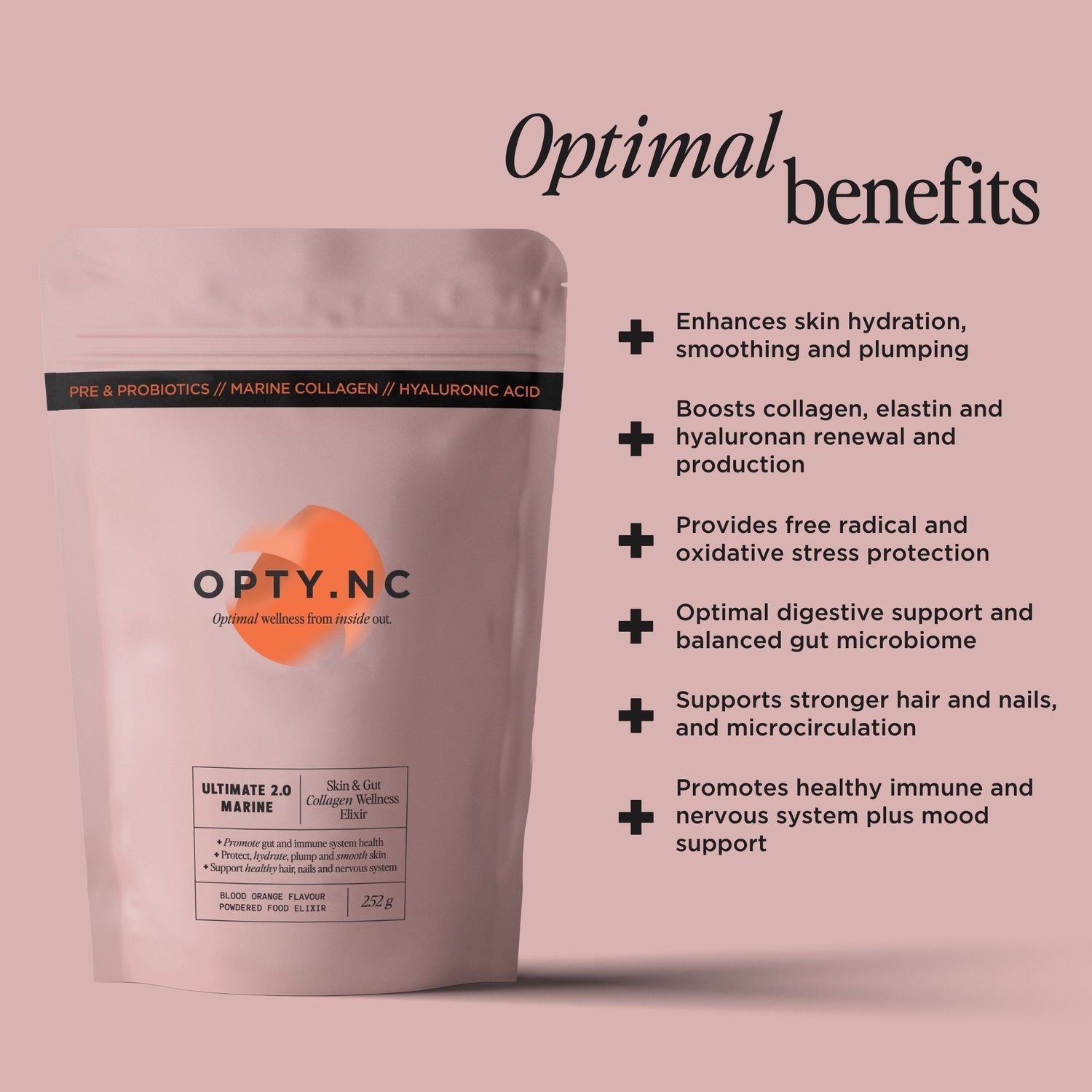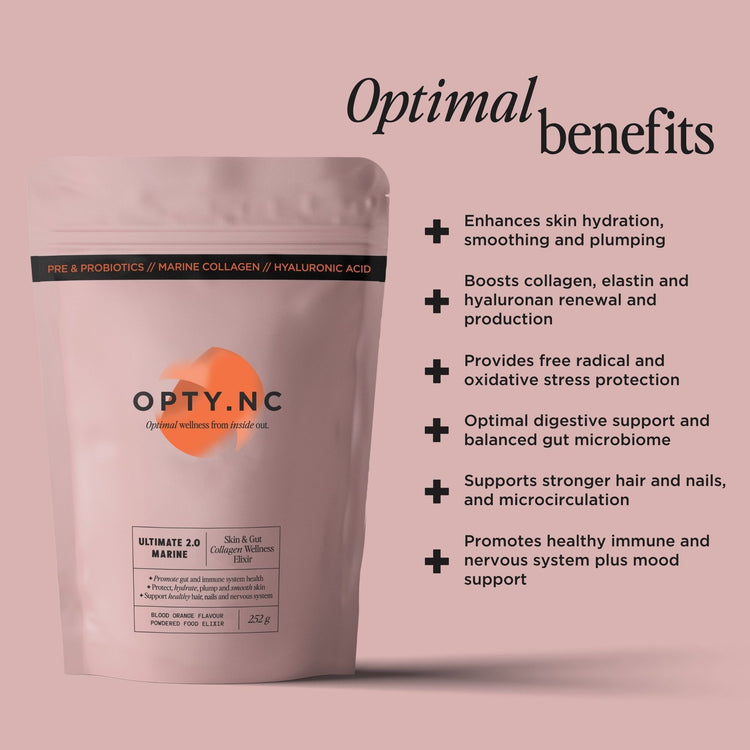The gut, often referred to as the "second brain," is a remarkably complex and vital part of our body. It's where digestion takes place, nutrients are absorbed, and an intricate ecosystem of microorganisms thrives. When everything in your gut is in balance, it hums along harmoniously, supporting your overall well-being. However, an imbalanced gut, or dysbiosis, can disrupt this delicate equilibrium, leading to a wide range of health issues.
Let’s explore the signs of gut imbalance, delve into what a healthy gut should feel like when functioning properly, and underscore the paramount importance of looking after your gut health. We’ll also share a downloadable guide from Raquel Cutajar from @the.sunday.nook outlining 10 Effective Steps to Heal your Gut.
SO MANY PEOPLE BRING UP THEIR GUT ISSUES BUT HAVE NO IDEA WHAT TO DO ABOUT THEM AND HOW TO PUT AN END TO THEM. AS I CERTIFIED WOMEN’S HEALTH COACH I HAVE CREATED THIS “REVITALIZE YOUR GUT” GUIDE IN HOPES TO HELP YOU BETTER UNDERSTAND HOW TO HEAL AND BALANCE YOUR GUT. THE REASON I SAY “HOPE” IS BECAUSE IF YOU DON’T FOLLOW THE WAYS CONSISTENTLY, YOU MOST LIKELY WON’T FIND THOSE HEALING POWERS YOU’VE BEEN SEARCHING FOR. ~ Raquel
Signs of an Imbalanced Gut (Dysbiosis)
Our gut is home to trillions of microorganisms, including bacteria, viruses, fungi, and more, collectively known as the gut microbiome. This complex community plays a pivotal role in maintaining our health, and when it's thrown off balance, it can trigger various symptoms and problems. Here are some common signs of an imbalanced gut:
Digestive Discomfort: Frequent bloating, gas, abdominal pain, cramps, or diarrhea can signal an issue with gut health. These symptoms often arise due to an overgrowth of harmful bacteria or an imbalance in the gut flora.
Food Intolerances: An imbalanced gut can lead to food sensitivities or intolerances. You may find that certain foods, such as dairy or gluten, trigger digestive issues, even if you had no problems with them before.
Irregular Bowel Movements: Consistency in your bowel movements can be a key indicator of gut health. If you experience chronic constipation or diarrhea, it may suggest an underlying issue with your gut microbiome.
Unexplained Weight Changes: An imbalanced gut can affect your metabolism and how your body stores fat. This can lead to unexplained weight gain or difficulty in losing weight.
Skin Problems: Skin issues like acne, eczema, or rosacea can be linked to gut health. Inflammation in the gut can manifest as inflammation on the skin, leading to various skin conditions.
Chronic Fatigue: Feeling persistently tired or experiencing low energy levels could be a result of poor nutrient absorption or the release of toxins from harmful gut bacteria.
Mood Disorders: The gut-brain connection is a well-established link, and an imbalanced gut can influence your mood. Conditions such as anxiety and depression may worsen or be more challenging to manage.
Autoimmune Disorders: Some autoimmune conditions, including rheumatoid arthritis and multiple sclerosis, have been associated with imbalances in the gut microbiome.
Yeast Infections: Frequent yeast infections, such as thrush or vaginal yeast infections, can be a sign of an overgrowth of Candida yeast in the gut.
Joint Pain and Inflammation: Chronic joint pain and inflammation can be exacerbated by gut dysbiosis, as inflammation in the gut can contribute to systemic inflammation.
Strong Sugar or Carbohydrate Cravings: Cravings for sugary or high-carbohydrate foods can be influenced by imbalances in gut bacteria that thrive on such foods.
Chronic Infections: An imbalanced gut can weaken the immune system, making you more susceptible to frequent infections, including respiratory and urinary tract infections.
Allergies and Sensitivities: Heightened allergic reactions or sensitivities to environmental allergens, food, or substances can indicate an imbalanced immune response.
It's important to remember that these symptoms can vary widely from person to person, and experiencing one or more of these signs does not necessarily confirm an imbalanced gut. If you suspect gut-related issues, consulting a healthcare professional or a gastroenterologist is advisable. They can conduct tests, such as stool analysis and gut microbiome assessments, to provide a more accurate diagnosis and personalized recommendations for improving gut health.
What a Healthy Gut Feels Like (Proper Functioning)
Now that we've explored the signs of an imbalanced gut, let's shift our focus to what a healthy gut should feel like when it's functioning optimally. A well-balanced gut contributes significantly to overall health and well-being. Here are some characteristics of a healthy gut:
Efficient Digestion: Food is digested smoothly, and nutrients are absorbed effectively. You experience minimal bloating, gas, or discomfort after meals.
Regular Bowel Movements: You have consistent and regular bowel movements. Your stool is well-formed, easy to pass, and doesn't cause pain or straining.
Balanced Microbiome: Your gut microbiome is diverse and balanced, with a mix of beneficial and harmful bacteria. This balance promotes optimal digestion and immune function.
Healthy Skin: Your skin is clear, radiant, and free from chronic skin conditions like acne, eczema, or psoriasis.
Stable Mood: Your mood is generally stable, and you experience lower levels of anxiety and depression. A healthy gut supports the production of neurotransmitters like serotonin, which are linked to mood regulation.
Steady Energy Levels: You have sustained energy throughout the day, and you don't experience extreme fatigue or energy crashes after meals.
Strong Immune Function: Your immune system is robust and able to defend against infections and illnesses effectively.
Maintained Weight: Your weight is stable, and you find it easier to maintain a healthy weight without extreme fluctuations.
Optimal Nutrient Absorption: Your body efficiently absorbs essential vitamins and minerals from your diet, supporting overall health and vitality.
Low Inflammation: Systemic inflammation is minimal, reducing the risk of chronic inflammatory conditions.
The Importance of Looking After Your Gut Health
Your gut health is undeniably crucial to your overall well-being. It's not just about avoiding discomfort; it's about nurturing a thriving internal ecosystem that affects virtually every aspect of your health. Here's why looking after your gut health is of paramount importance:
Nutrient Absorption: A healthy gut is essential for the absorption of vital nutrients. Even a balanced diet won't benefit you fully if your gut isn't absorbing the nutrients properly. This can lead to nutrient deficiencies and a host of health problems.
Immune System Support: Your gut houses a significant portion of your immune system. A well-balanced gut microbiome helps your immune system distinguish between harmful invaders and beneficial organisms, allowing it to function optimally.
Mood and Mental Health: The gut-brain connection is a two-way street. A healthy gut can positively influence your mood and mental health, while an imbalanced gut can contribute to mood disorders like anxiety and depression.
Skin Health: Clear and radiant skin is often a reflection of a healthy gut. An imbalanced gut can trigger inflammation and lead to various skin conditions, including acne and eczema.
Weight Management: Gut health plays a role in weight management by regulating digestion, metabolism, hormones, inflammation, and appetite. An imbalanced gut microbiome can disrupt these processes, making it more challenging to achieve and maintain a healthy weight.
10 Steps to Help Heal and Balance your Gut
Introducing Raquel, your trusted holistic wellness coach. Armed with in-depth knowledge and personal experience, she takes you on a transformative journey to heal your gut. Get to know her backstory and uncover her comprehensive 10 Step Guide.
"My journey into the health and fitness industry began after I lost 23kg through nutrition and fitness research. I immersed myself for years in everything fitness and food. from there my interest grew into holistic well-being. I have been researching and learning and adapting over the last 12 years of my life to bring you this program with outstanding topics that should be implemented into your life if you want overall well-being, energy, and vitality.
Now, as a certified women’s health coach, I bring you this guide which is only the beginning of the magical world of well-being you are about to embark on. I hope you enjoy this guide as much as I enjoyed creating it for you."
~ Raquel xo
DOWNLOAD FREE GUIDE HERE
For more tips follow Raquel via Instagram @the.Sunday.nook or www.thesundaynook.com.au























